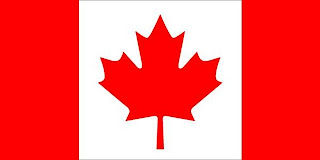

Ireland (Irish: Éire, Irish pronunciation: [ˈeːrʲə]) is an island country in north-western Europe. The modern sovereign state occupies about five-sixths of the island of Ireland, which was partitioned by the British on 3 May 1921.[5] It is bordered by Northern Ireland—part of the United Kingdom—to the north east, the Irish Sea to the east, St George's Channel to the south-east, the Celtic Sea to the south and by the Atlantic Ocean to the west and north. The legal name of the state is "Ireland", but its description the Republic of Ireland is sometimes used to differentiate the state from the island.[6]
The Irish Free State was established on 6 December 1922, giving Ireland a measure of independence from Great Britain. The Irish Free State became Ireland on 29 December 1937.[7] In 1949, Ireland became a republic and departed from the British Commonwealth to gain complete independence.[8] It had already ceased to participate in that organisation.
Ireland was one of the poorest countries in Western Europe and had high emigration but in contrast to many other states in the period remained financially solvent as a result of low government expenditure. The protectionist economy was opened in the late 1950s and Ireland joined the European Communities (now the European Union) in 1973. An economic crisis led Ireland to start large-scale economic reforms in the late 1980s. Ireland reduced taxation and regulation dramatically compared to other EU countries.[9]
Despite reduced economic growth in 2008, Ireland today has the sixth highest gross domestic product per capita and the eighth highest per capita considering purchasing power parity,[10][11] and has the fifth highest Human Development Index rank in the world. The country also boasts the highest quality of life in the world, ranking first in the Economist Intelligence Unit’s Quality-of-life index. Ireland was ranked sixth on the Global Peace Index. Ireland also has high rankings for its education system, political freedom and civil rights, press freedom and economic freedom; it was also ranked fourth from the bottom on the Failed States Index, being one of the few "sustainable" states in the world.
Ireland is a member of the EU, the OECD, and the UN. Ireland is not a member of NATO, although it does contribute to peacekeeping missions sanctioned by the UN.











